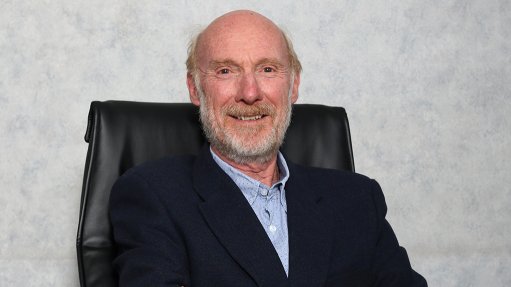
By John Parry, newly appointed chairperson of SAQCC Gas
It is no secret that there is a global shift towards smarter and greener energy use. While still predominantly relying on coal, South Africa is aiming towards combining gas and renewables as the best future energy solution. Across multiple sub-sectors in the gas industry, it is vital then for key players to develop and grow as a united group in order to support South Africa’s energy goals.
As a new year marches in and we inch closer to 2030, the fact is that coal remains the reigning king of energy resources. Recent data released by General Electric states that coal accounts for 86% of the country's energy mix, making South Africa’s 2030 goal to reduce its annual greenhouse gas emissions by an additional 25% of its 2015 commitments seem not yet within reach. While discouraging, this does not spell doom for South Africa’s future energy goals. From the successful implementation of importing natural gas via pipelines from Mozambique to South Africa, as well as the City of Johannesburg converting a large portion of a variety of service vehicles to run on compressed natural gas, it is evident that there is ample drive and ambition behind fully utilising gas energy in our country.
When ESI Africa spoke to head of WITS Business School South Africa, Maurice Radebe, on what they called the “gas revolution,” he said that “gas is a solid bridge” for South Africa to transition to more sustainable energy solutions. In order to accomplish this, Radebe believes the role of government makes a large contribution towards achieving this. Government must ensure that there is a regulatory framework in place in order to encourage investment, employment creation as well as keep all gas practices legal and competent. This is what pushes development in the right direction.
Whether it’s a humble gas hob in the average South African home or large scale combustion and heating systems in industrial sectors, we must never lose sight of the big picture. All types of gas practitioners and their relevant associations are connected because everyone falls under one regulatory structure, one that is crucial to South Africa’s energy development. This is where the South African Qualification and Certification Committee for Gas (SAQCC Gas) is a key factor in the country’s energy future. SAQCC Gas was formed in order to establish a central database of registered and authorised gas practitioners to work on gas and gas related systems. Depending on what gas a practitioner specialises in, they may belong to either of the four associations: Liquefied Petroleum Gas Association of South Africa (LPGSA), Southern Africa Compressed Gases Association (SACGA), South African Refrigeration & Air Conditioning Contractors Association (SARACCA), and Southern African Gas Association (SAGA). However, it is compulsory in terms of the Occupational Health and Safety (OHS) Act, specifically concerning the Pressure Equipment Regulation (PER), for all gas practitioners to be registered with SAQCC Gas.
SAQCC Gas is the regulatory framework mandated by the South African government to ensure registrations of qualified gas practitioners. The four associations on the board facilitate essential growth in the gas industry. John Parry, chairperson of SAQCC Gas, emphasises that for development, communication is an important business tool. “No matter how large or small the company is, if you fail to get the message across you are not going to get everyone going in the same direction.”
At SAQCC Gas, that direction is crystal clear. First and foremost, safety is the top priority in gas installation and use. Registration as well as reporting of non-compliance ensures that a uniform standard is adhered to, meaning all precautions are taken when mistakes can seriously impact lives.
“Our strategy focuses on public awareness. The public drives the registration of gas practitioners by being aware of the legal requirements, [for instance,] people must ask for registered practitioners and a Certificate of Compliance (CoC).”
Parry adds that SAQCC Gas streamlines a gas practitioner’s access to new gases, training, regulations, industry developments and technological advancements. Keeping informed and updated is just as vital as minimising environmental impact. When it comes to controlled gases, Parry notes that SAQCC Gas advocates high competency in the recovery of refrigerant gases and limiting the releasing of certain gases into the atmosphere which positively contributes to reducing the depletion of the Earth's ozone layer.
By John Parry, the newly appointed chairperson of SAQCC Gas. He has been on the SAQCC Gas board for the past nine years. As well as being a mechanical engineer, Parry has invaluable experience in the gas industry.